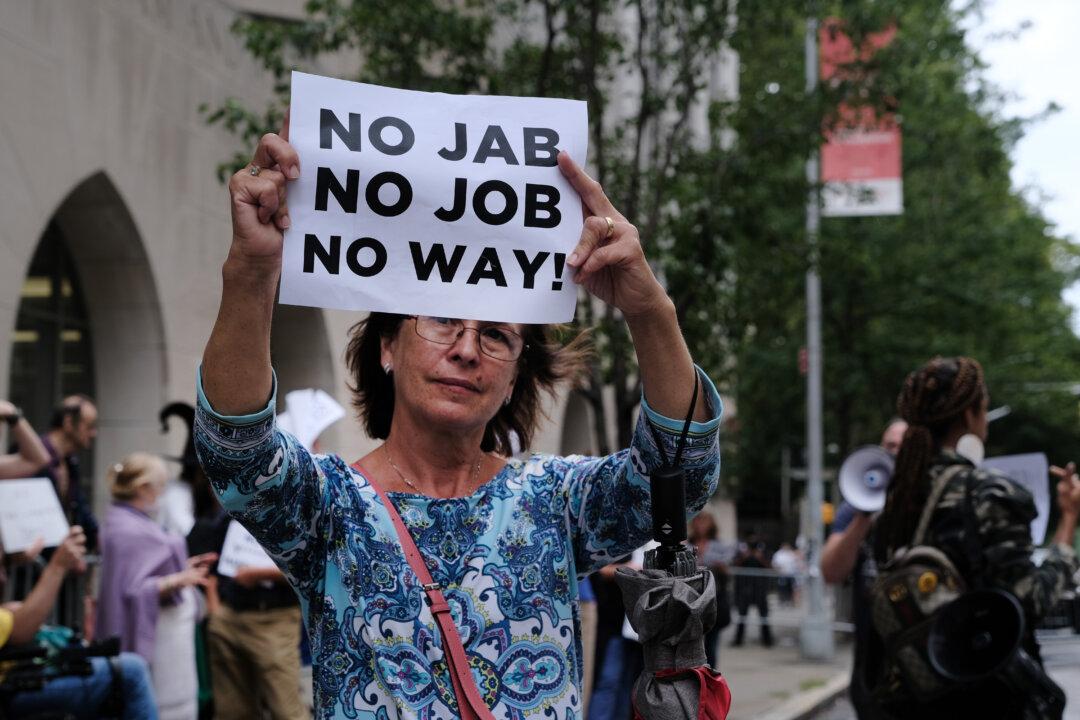The legal team seeking an emergency injunction to prevent Maine from enforcing a new CCP virus vaccine mandate that requires healthcare workers to get the jab or lose their jobs is optimistic that a federal judge will rule against the state because the mandate does not allow religious exemptions.
The case comes after a federal judge on Sept. 14 granted an emergency injunction blocking the state of New York from enforcing a new virus vaccine mandate for healthcare workers, as The Epoch Times previously reported.





